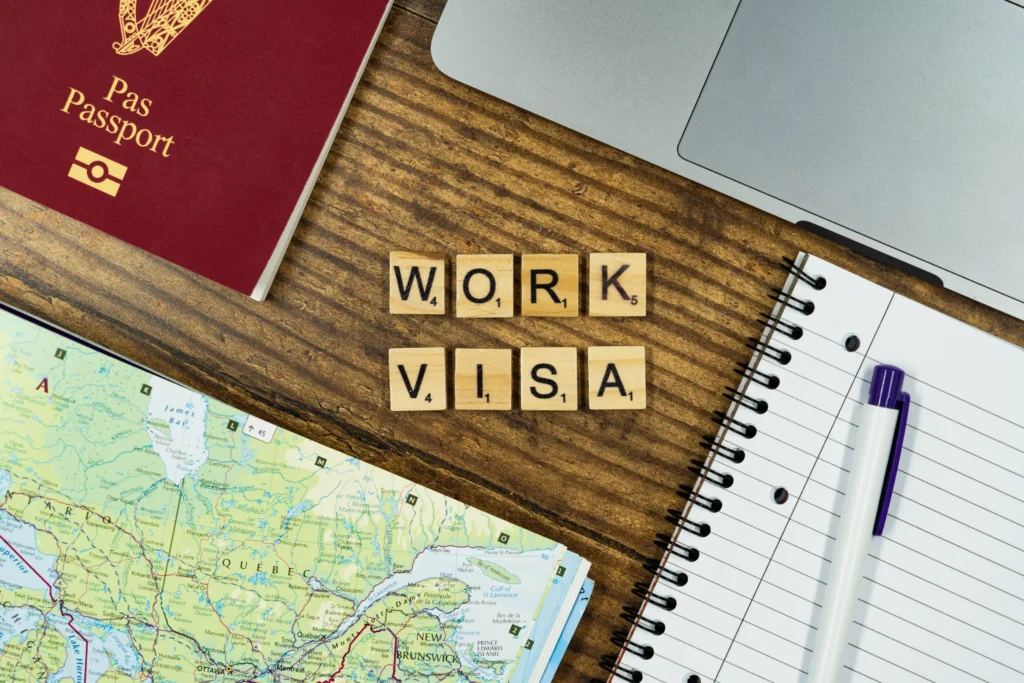Spain has introduced a digital nomad visa that allows Indian professionals who work remotely for foreign clients or employers to live and work in the country for one year, with the possibility of extending residency up to five years.
The application fee is approximately ₹8,000, making it one of the most affordable digital nomad visas in Europe.
The visa officially became active on June 10, 2025. It is part of Spain’s Startup Act and is designed to attract international remote workers while stimulating the local economy.
Indians and other non‑EU citizens now have the chance to base themselves in Spain, enjoy its lifestyle, and continue earning abroad.

Eligibility: Who Can Apply
Indian citizens qualify since they are non‑EU/EEA nationals. Applicants must work remotely for companies or clients outside Spain, or operate as self‑employed professionals whose Spanish clients make up no more than 20 percent of income.
A university degree or at least three years of relevant work experience is required.
Income must meet or exceed 200 percent of Spain’s national minimum wage. As of 2025, that works out to at least €2,763 per month, which equals approximately ₹2.76 lakh. Additional income is required for dependents.
What the ₹8,000 Fee Covers
Indian applicants pay about ₹8,000, or €80 to €100, to submit their visa application. That figure includes the official consular fee.
The total may vary slightly depending on exchange rates and banking charges.
Other costs may include document translation, health insurance premiums, and translation services where required.
Financial Requirements and Family Coverage
The minimum monthly income requirement for the main applicant is €2,763. For a spouse or unmarried partner, the requirement increases by 75 percent of Spain’s minimum wage, and for each child, by an additional 25 percent.
A family of three must demonstrate a combined minimum income of around €4,144 per month.
Application Process Explained
To apply:
- Gather required documents including passport, visa form, proof of remote work income, educational or experience certificates, criminal background check, and health insurance valid in Spain.
- Submit the application at a Spanish consulate or embassy in India. Processing time varies from ten days to six weeks.
- Upon arrival in Spain, applicants must register for a foreign identity number (NIE) and apply for a residence card (TIE), valid initially for one year with renewal options.
Renewals can extend residency up to a total of five years. After five consecutive years, permanent residency or citizenship may be possible.
Tax Advantages Under the Beckham Law
If visa holders reside in Spain more than 183 days per year, they become tax residents. Under Spain’s “Beckham Law,” qualified digital nomads may enjoy a reduced flat tax rate of 24 percent on Spanish‑sourced income up to €600,000 per year, for up to six years.
India and Spain maintain a Double Taxation Avoidance Agreement, which helps prevent dual taxation for Indian applicants residing in Spain.
Lifestyle Perks and Local Integration
Spain offers a vibrant mix of culture, climate, cuisine, and infrastructure. Cities such as Barcelona, Madrid, Valencia, and coastal regions like Costa Blanca and Ibiza attract digital workers looking for balance between lifestyle and remote productivity.
Remote professionals can access coworking facilities and a growing expat community. Regions such as the Ambroz Valley even offer relocation incentives to digital nomads who commit to two-year residencies.
Preparing a Budget for Nomad Life
Estimated monthly expenses breakdown:
- Rent for a one-bedroom apartment ranges from €800 to €1,500 in main cities.
- Utilities and internet cost €100‑€150.
- Groceries account for €200‑€400.
- Public transport passes cost €40‑€60.
A comfortable but modest remote work lifestyle ranges from €1,500 to €3,000 per month depending on location and personal preferences.
Common Tips and Potential Pitfalls
- Submit insurance proof upfront, as missing or insufficient coverage can delay visa approval.
- Ensure income documents clearly separate Spanish and non‑Spanish sources. Any income from Spain must not exceed 20 percent.
- Translation of key documents by certified translators may be required. Budget for these costs.
- Stay in Spain for at least 183 days per year to retain tax residency benefits and maintain eligibility for renewal.
Travel Perks: Free Movement Within Schengen

Visa holders gain access to the Schengen Area, allowing travel to other European countries without additional visa formalities.
Spain’s central location and well-connected airports make weekend trips to France, Portugal, Italy, and Germany feasible.
Why This Visa Matters to Indian Professionals
This visa brings together affordability, flexible residency, tax savings, and European lifestyle at a very modest cost.
India’s emerging class of remote professionals, freelancers, and entrepreneurs now have a way to base themselves legally in Spain while continuing to work for global clients.
The visa accommodates family inclusion, enables access to Spanish and European culture, and offers a clear pathway to longer-term residency options.
For many, it opens doors that previously required major investment or high annual passive income.
Wider Trends and Global Context
Spain’s digital nomad visa follows a global trend. As other countries such as Portugal, Malta, Estonia, and Greece compete to attract remote workers, Spain has positioned itself as a high value choice among Indian applicants thanks to its low fees and relaxed eligibility.
Its move to abolish the golden visa program in April 2025 has coincided with the launch of this digital nomad initiative, signaling a shift in immigration strategy.
What to Expect from the Future
As adoption grows, demand may rise especially among Indian applicants. Spain is discussing digital services and processing improvements to handle increased volumes.
Some regions are already exploring incentives to distribute remote worker settlements beyond main cities.
Final Thoughts
Spain is offering Indian remote workers an opportunity that balances affordability with quality of life.
At around ₹8,000, the visa offers one year of legal residency, a pathway to extended stays up to five years, tax benefits, family inclusion and access to Europe’s Schengen zone.
For remote professionals with stable international income and a readiness to live in another culture, Spain’s digital nomad visa represents a smart move.
It allows work and travel from one of Europe’s most attractive and well-connected countries, with clear benefits and manageable costs.











